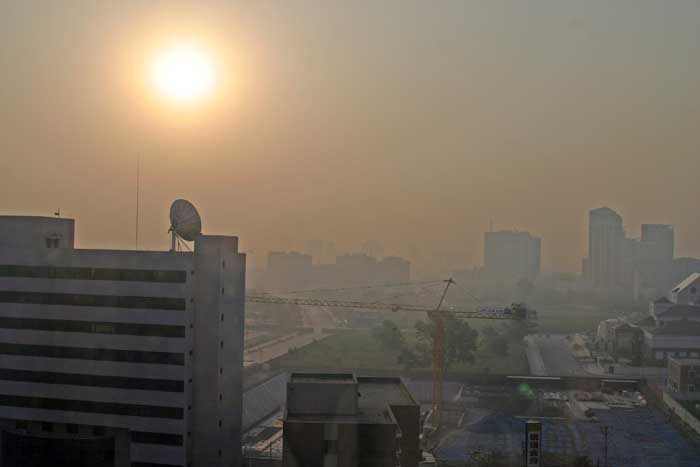Volkswagen has underscored that its diesel cars affected by its TDI emissions scandal are safe to drive.
It highlights that on a special consumer site dedicated to information about these models, which include the 2009-2015 Jetta TDI, 2009-2014 Jetta SportWagen TDI, 2010-2015 Golf TDI, 2015 Golf SportWagen TDI, 2012-2015 Beetle TDI, and 2012-2015 Passat TDI.
At the same time, a number of public-health experts have commented that these vehicles’ added pollution is not safe—and it’s costing the public at large, in health and perhaps lives.
CHECK OUT: Tesla Model X Spreads Its (Falcon) Wings: Production Details Revealed
There are reasons, rooted in sound public-health and epidemiological studies, why the federal government restricts certain pollutants. According to the U.S. EPA, Clean Air Act enforcement includes six “criteria pollutants—nitrogen oxides (NOx), ozone, lead, carbon monoxide, sulfur oxides, and particulate matter.
Taking it to heart...and lung
NOx is at the center of the Volkswagen TDI controversy, with VW’s “defeat device” allegedly allowing up to 40 times the legal limit. For NOx, U.S. EPA lays out a long list of public health issues. It can cause increased respiratory symptoms and issues (especially asthma), and “can aggravate existing heart disease, leading to increased hospital admissions and premature death.”
You can’t see or smell NOx, but it’s also considered a precursor to particulate matter—which of course affects public health in a multitude of ways.
The New York Times recently looked into the potential cost of this extra pollution, in lives, and pointed to a German paper that attributed air pollution to about three million premature deaths per year, globally, with that number potentially doubling by 2050. And in California alone (the state with the most diesel passenger cars), according to that state’s Air Resource Board there are 7,200 premature deaths annually caused by air pollution, while 73 percent of the state’s population live in counties with unhealthy levels of ozone or particulates.
ALSO SEE: Tesla Model X: The New Safest SUV?
Beijing smog
Far worse than a double standard
As that report points out, diesel cars make up less than one percent of the total vehicles on the road in the U.S., but if every vehicle were allowed to exceed the legal limits by the amount potentially afforded to those affected VW vehicles, there could be some disastrous effects on public health.
Considering the number of vehicles sold since 2008, and their cumulative effects, that report estimates that Volkswagen TDI vehicles subject to the scandal emitted about 46,000 additional tons of nitrogen oxide.
WATCH: Elon Musk Hints At 50 Percent More Range For Tesla Model S: Video
Under two separate scenarios examined there, one suggests that there have been around 40 additional deaths plus other additional “health consequences,” while another tallies to 106 additional deaths if using data based on power-plant emissions.
And taking into account VW’s admissions that the defeat devices went into about 11 million vehicles globally, and average vehicle mileages, that’s led some to estimates that between 330 and 990 tons of extra nitrogen oxide might have been emitted.
In any case, it’s sorely apparent now that in some cases, VW’s so-called Clean Diesel engines might have added to air quality concerns rather than remedied them.
_________________________________________













